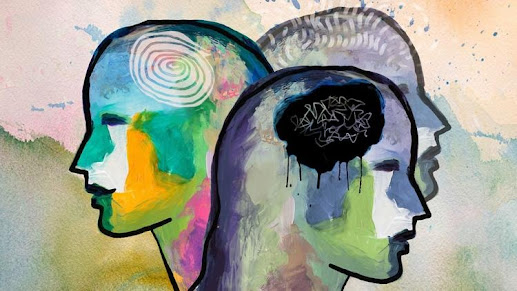Accessing
Bipolar Resources: A Guide to Support and Information
Bipolar disorder is a challenging
mental health condition that affects millions of people worldwide. Managing
this condition requires a comprehensive approach that includes medication,
therapy, lifestyle changes, and, crucially, access to reliable resources.
Whether you’re newly diagnosed, supporting a loved one, or seeking to learn
more about the disorder, having access to the right bipolar resources can make
a significant difference in understanding and managing the condition
effectively.
Understanding
Bipolar Disorder
Before diving into the available
resources, it’s essential to have a basic understanding of what bipolar
disorder entails. Bipolar disorder, also known as manic-depressive illness, is
characterized by extreme mood swings that include emotional highs (mania or
hypomania) and lows (depression). These mood shifts can be overwhelming and can
disrupt daily life, relationships, and work.
Bipolar disorder is a lifelong
condition, but it can be managed with proper treatment and support. This is
where bipolar resources come into play—they provide the necessary tools,
information, and support systems to help individuals manage their condition and
improve their quality of life.
Types
of Bipolar Resources
Bipolar resources come in various
forms, from online platforms and support groups to books and professional
organizations. Each type of resource offers unique benefits and can be tailored
to meet individual needs.
- Online Bipolar Resources: The internet is a vast repository of information, and
there are numerous websites dedicated to providing accurate and up-to-date
information on bipolar disorder. These sites often include educational
articles, personal stories, forums, and access to mental health
professionals. Examples of reputable online bipolar
resource include:
- National Institute of Mental Health (NIMH): The NIMH provides comprehensive information about
bipolar disorder, including symptoms, treatment options, and research
updates.
- Depression and Bipolar Support Alliance (DBSA): DBSA offers a wealth of resources, including support
groups, educational materials, and peer support for those living with
bipolar disorder.
- Bipolar Caregivers:
Websites and forums specifically designed for caregivers of individuals
with bipolar disorder offer support, advice, and strategies for managing
the challenges that come with caregiving.
- Books and Publications: Books written by mental health professionals,
researchers, and individuals with bipolar disorder can provide in-depth
knowledge and personal insights into the condition. Some well-known books
include:
- "An Unquiet Mind" by Kay Redfield Jamison: A memoir that offers a personal perspective on
living with bipolar disorder, written by a clinical psychologist who has
the condition herself.
- "The Bipolar Disorder Survival Guide" by
David J. Miklowitz: A
practical guide that provides strategies for managing the condition,
understanding treatment options, and dealing with challenges.
- "Bipolar Disorder: A Guide for Patients and
Families" by Francis Mark Mondimore: This book provides a thorough overview of the
disorder, including treatment approaches and advice for families.
- Support Groups:
Connecting with others who share similar experiences can be incredibly
beneficial for individuals with bipolar disorder and their families.
Support groups offer a safe space to share challenges, successes, and
coping strategies. Many organizations, such as DBSA and the National
Alliance on Mental Illness (NAMI), offer both in-person and online support
groups. These groups can be an invaluable bipolar resource for those
seeking community and understanding.
- Mental Health Professionals: Access to qualified mental health professionals, such
as psychiatrists, psychologists, and therapists, is a critical bipolar
resource. These professionals can provide diagnosis, treatment plans,
therapy, and ongoing support. It’s essential to find a mental health
professional experienced in treating bipolar disorder to ensure that the
care provided is tailored to the unique needs of the individual.
- Educational Workshops and Seminars: Many organizations offer workshops and seminars
focused on bipolar disorder. These events provide education on various
aspects of the condition, from managing symptoms and medication to
understanding the latest research. Participating in these programs can be
a valuable bipolar resource for both individuals with the disorder and
their families.
Finding
the Right Bipolar Resources
With so many resources available,
finding the right bipolar resource can seem overwhelming. Here are some tips to
help you navigate the options:
- Start with Reputable Sources: Begin with well-known organizations and institutions
that specialize in mental health. Websites like NIMH, DBSA, and NAMI are
reliable sources of information and can guide you to other reputable
resources.
- Seek Personalized Support: Consider joining a support group or finding a
therapist who specializes in bipolar disorder. Personalized support can
address specific challenges and provide tailored advice.
- Stay Informed:
Bipolar disorder research is continually evolving, so staying informed
about the latest developments is important. Subscribing to newsletters,
attending seminars, and reading new publications can keep you up-to-date
on treatment options and strategies.
- Leverage Technology:
There are numerous apps designed to help individuals manage bipolar
disorder. These apps can track mood, medication, and symptoms, making it
easier to share information with healthcare providers.
- Engage with the Community: Connecting with others who understand what you’re
going through can be a powerful source of support. Whether through online
forums or local support groups, engaging with the bipolar community can
provide encouragement and practical advice.
Conclusion
Access to bipolar resources is vital
for anyone affected by the disorder, whether directly or as a caregiver. These
resources provide essential information, support, and tools that can help
individuals manage their condition more effectively. By utilizing a combination
of online platforms, books, support groups, and professional guidance, those
living with bipolar disorder can find the help they need to navigate their
journey with greater confidence and stability.
In a world where mental health
challenges are increasingly recognized and understood, bipolar resources are
more accessible than ever. Whether you’re seeking information, support, or
treatment options, the right resources can make a significant difference in
managing bipolar disorder and leading a fulfilling life.



Comments
Post a Comment